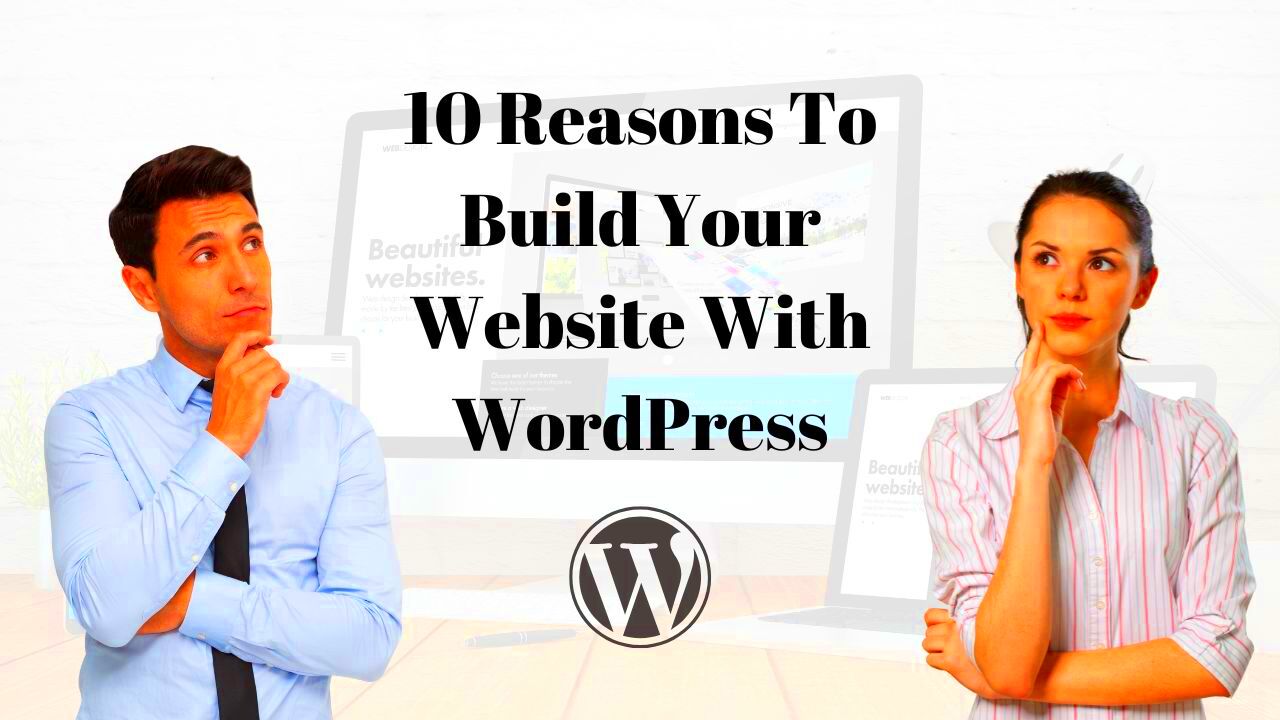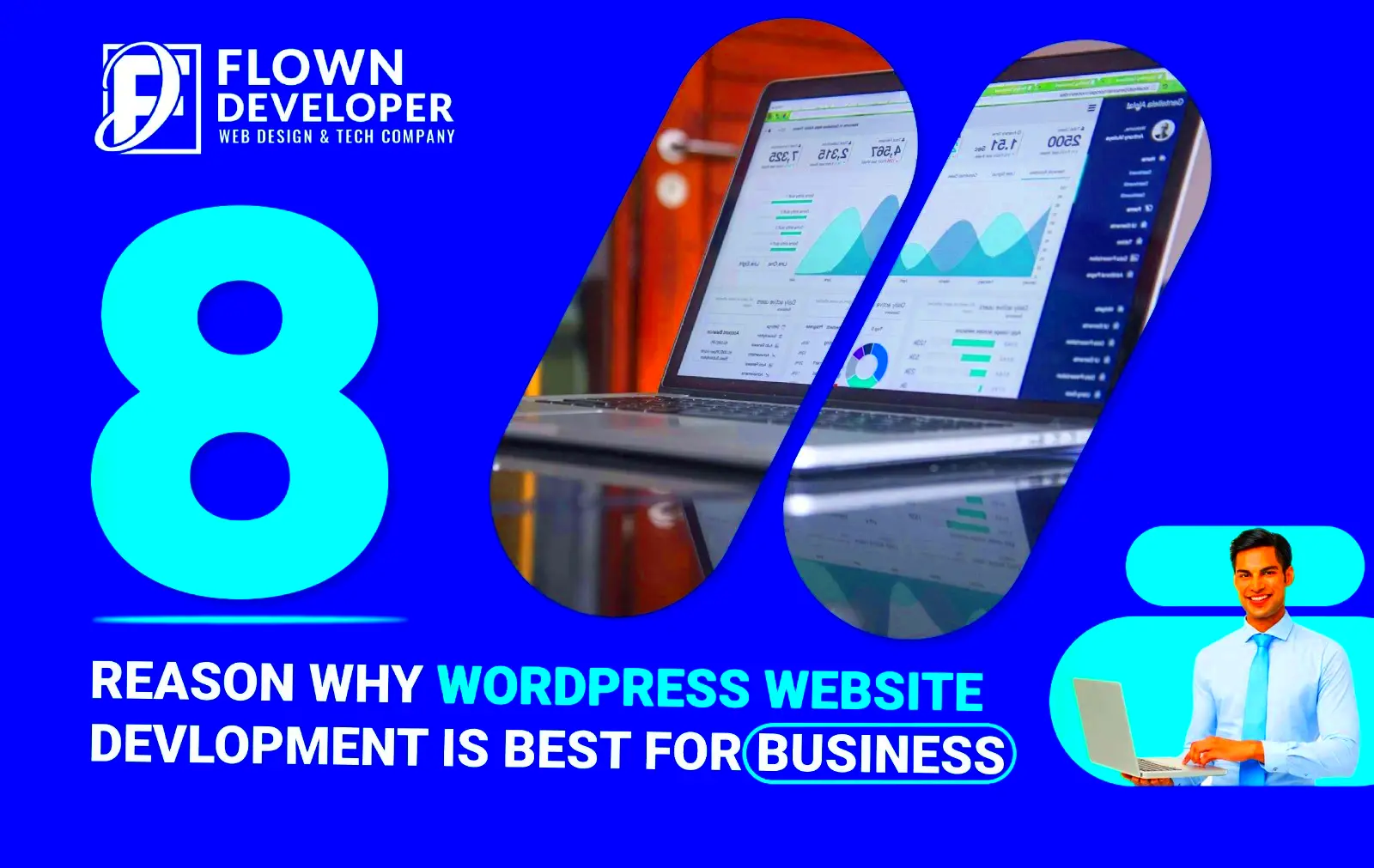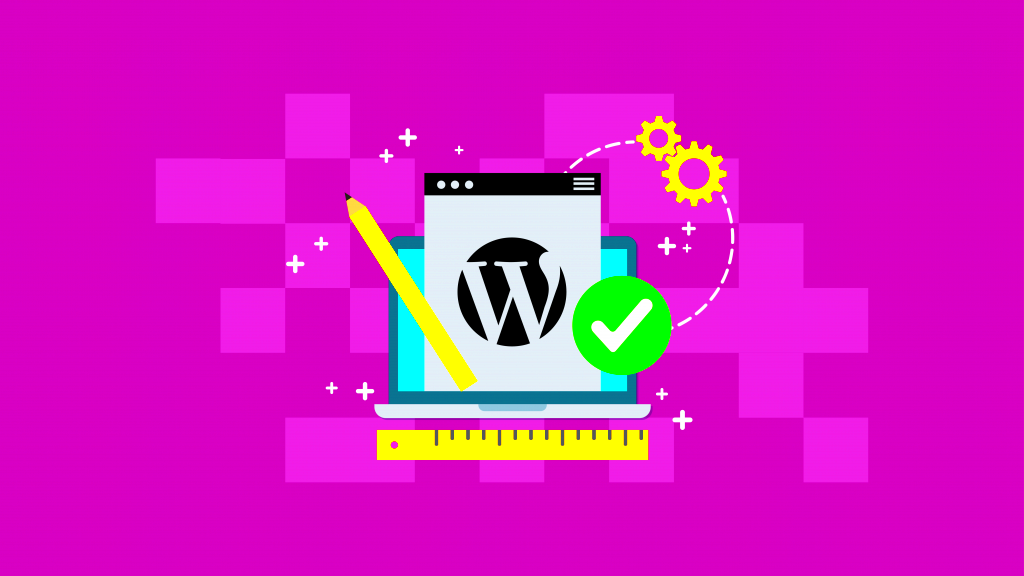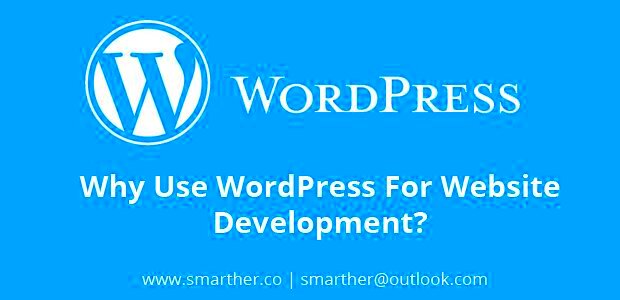When it comes to building websites, WordPress is often the first name that pops into people’s minds. Why? Well, it’s not just popular; it’s powerful and versatile! Originally designed for blogging, WordPress has now evolved into a full-scale content management system (CMS) that serves a wide range of website needs, from personal portfolios to eCommerce sites. This makes it an excellent choice for developers who want a robust platform to create stunning websites without starting from scratch. Let’s dive deeper into some of the unique features that make
Flexibility and Customization Options

One of the hallmark traits of WordPress is its remarkable flexibility and extensive customization options. Developers have the freedom to tailor websites dramatically according to their client’s needs—and here’s why:
- Thematic Freedom: WordPress offers thousands of themes, catering to every niche imaginable. Whether you’re building a blog, a business website, or a portfolio, there’s a theme to get you started quickly.
- Plugin Ecosystem: With over 50,000 plugins available, you can enhance functionality easily. Need an SEO tool? There’s a plugin for that. Want to add a contact form? Yep, there’s a plugin for that too!
- Custom Post Types: WordPress allows you to create custom post types, enabling developers to go beyond the standard blog posts and pages. This means you can build more complex sites tailored to specific needs.
- Code Access: For the more tech-savvy developers, WordPress provides access to the underlying PHP code. This means you can create your own themes or edit existing ones to achieve a unique design and functionality.
In a nutshell, the flexibility and customization possibilities with WordPress are practically endless, allowing developers to mold their website projects to fit any requirement or vision they have in mind.
Robust Ecosystem of Themes and Plugins

When it comes to building a website, having the right tools can make all the difference. WordPress shines in this area with its robust ecosystem of themes and plugins. This means that developers have access to thousands of pre-designed templates and extensions that can help them tailor their sites to meet specific needs without starting from scratch.
With thousands of themes available, developers can choose from a wide variety of pre-designed styles, ensuring that they can find something that suits any niche, whether that’s a sleek corporate website or a vibrant personal blog. Some popular theme marketplaces include:
- ThemeForest
- Astra
- OceanWP
These themes are not only visually appealing but are also SEO-optimized and mobile-responsive, catering to the modern web standards. Customizing these themes is a breeze, allowing developers to tweak designs using page builders like Elementor and Beaver Builder.
On the other hand, plugins are the secret sauce that can enhance functionality. With over 58,000 plugins available in the official WordPress repository, the options are staggering! From optimizing performance with caching plugins like WP Super Cache to enhancing security with Wordfence, developers can pick and choose what their site truly needs. Here’s a quick look at some must-have plugins:
- Yoast SEO: Boosts your website’s visibility on search engines.
- WooCommerce: Transforms any website into a fully functioning eCommerce site.
- Contact Form 7: Simplifies creating contact forms.
This robust ecosystem significantly reduces development time. Instead of reinventing the wheel, developers can depend on tried-and-tested resources that allow them to push their projects live efficiently.
Strong Community Support

One of the key factors that make WordPress the go-to website builder for developers is its strong community support. When you choose WordPress, you’re not just selecting a platform; you’re joining a sprawling, global network of developers, designers, and enthusiasts who are all keen to help each other out.
The first source of community support comes from the numerous online forums and groups. Whether you face a technical hurdle or just need advice on best practices, platforms like:
- WordPress Support Forums
- Stack Overflow
- Facebook Groups
- Reddit (r/WordPress)
…are buzzing with experts ready to lend a helping hand. A simple search can often bring a plethora of answers to common questions. Moreover, many of these groups organize meetups and local WordCamps where developers can exchange ideas, share experiences, and even collaborate on projects.
Furthermore, the wealth of documentation and tutorial resources available is staggering. Websites like the WordPress Codex and WPBeginner offer detailed guides, tutorials, and how-tos on everything from installation to advanced coding techniques. This abundance of resources not only helps new developers but also acts as a reference for seasoned pros looking to brush up on their skills.
In addition to the online resources, the sheer number of plugins and themes available has fostered a culture of collaboration and contribution. Developers can always find robust, user-driven support, making troubleshooting much easier and more efficient.
So, whether you’re a complete novice or a seasoned developer, the strong community support surrounding WordPress is an invaluable asset that ensures you’re never truly alone on your web development journey.
SEO-Friendly Features Built-In
One of the reasons developers flock to WordPress is its robust SEO-friendly features baked right into the platform. You might wonder why SEO matters so much—after all, what’s the point of having a stunning website if no one can find it, right? With WordPress, getting found on search engines is much easier thanks to several built-in capabilities.
First off, WordPress offers a clean permalink structure which search engines love. Clean URLs are easier to index and can improve your website’s ranking. You can even customize these permalinks to include keywords that matter to your niche. This is a game-changer for developers looking to optimize their projects for specific search terms.
Another fantastic feature is the ability to easily integrate with various SEO plugins such as Yoast SEO and All in One SEO Pack. These plugins provide invaluable insights, helping you optimize your content in real-time. Here’s a quick rundown of their capabilities:
- Keyword Optimization: Get suggestions for target keywords and phrases.
- Readability Checks: Ensure your content is easy to read and understand.
- XML Sitemap Generation: Automatically generate a sitemap to help search engines index your site better.
- Social Media Integration: Optimize how your content appears when shared on social media platforms.
Finally, structured data support is another feather in WordPress’ cap. It helps in telling search engines exactly what your content is about, enhancing your visibility. With all these features, developers can focus on creating high-quality content while WordPress handles the SEO heavy lifting!
Scalability for Growing Projects
When it comes to long-term projects that are expected to grow, scalability is crucial. You don’t want a website that works perfectly today but crumbles under the pressure of increased traffic a few months down the line. WordPress excels in scalability, making it the perfect go-to website builder for developers aiming to grow their projects.
First, let’s talk about performance—WordPress can handle thousands of pages and posts without breaking a sweat. Thanks to its efficient database structure and caching techniques, your site can remain speedy even as it scales. Here are some key aspects of WordPress scalability:
- Flexible Hosting Options: You can start with shared hosting and effortlessly transition to VPS or dedicated server hosting as your traffic increases.
- Load Balancing: WordPress can be configured to distribute traffic across multiple servers, ensuring that no single server becomes a bottleneck.
- Content Delivery Network (CDN) Integration: Using a CDN can dramatically improve loading times for a global audience, regardless of where your users are located.
- Custom Post Types and Taxonomies: These allow you to easily extend functionality without cluttering your database.
Moreover, the plugin ecosystem in WordPress means developers can add features as their projects scale. Want to handle more users or products? There’s likely a plugin for that! This adaptability ensures that your projects can evolve without limits.
In summary, whether you’re building a small blog or a large e-commerce site, WordPress provides the scalability needed to grow without cumbersome migrations or redesigns. So why not take advantage of these features and see how effortlessly WordPress can adapt to your needs?
6. Developer-Friendly Tools and Frameworks
When it comes to website development, having the right tools and frameworks at your disposal can make all the difference. WordPress shines in this area, offering a range of developer-friendly options that cater to both beginners and seasoned pros.
One of the standout features of WordPress is its extensive library of plugins and themes. With thousands of plugins available, developers can easily add functionality to their websites without reinventing the wheel. From SEO optimization to e-commerce solutions, there’s a plugin for just about everything. Here’s a quick look at some essential plugins you might consider:
- Yoast SEO: A powerful tool for optimizing your site’s SEO.
- WooCommerce: The go-to plugin for building an online store.
- Elementor: A drag-and-drop page builder that simplifies design.
Besides plugins, WordPress is built on PHP, one of the most popular programming languages for web development, and it utilizes MySQL for database management. This makes it an ideal choice for developers who want a platform that they can customize and control effectively.
Moreover, developers can take advantage of WordPress’s rich ecosystem of frameworks, such as the WordPress REST API. This allows for seamless integration with other applications and services, enhancing the overall functionality and user experience. The ease with which you can develop custom themes and plugins ensures that your creative vision can become a reality!
In conclusion, WordPress is not just a CMS; it’s a versatile platform that provides developers with the tools they need to build sophisticated websites with ease. Whether you’re building a blog, a portfolio, or a full-fledged e-commerce website, you’ll find everything you need right at your fingertips.
7. Regular Updates and Security Focus
In the world of web development, keeping your site secure and updated is paramount. Thankfully, WordPress takes this responsibility seriously with its commitment to regular updates and robust security measures. This is a key reason why developers consistently choose WordPress as their go-to website builder.
First off, the WordPress development team actively works on improving the platform, releasing updates that fix bugs, patch vulnerabilities, and introduce new features. This not only enhances performance but also keeps your site safe from emerging threats. Here’s a summary of what you can expect from regular updates:
| Update Type | Description | Frequency |
|---|---|---|
| Core Updates | Improvements and new features in the platform. | Every few months |
| Security Releases | Critical patches to address vulnerabilities. | As needed |
| Plugin and Theme Updates | Enhancements and bug fixes from third-party developers. | Varies |
But it doesn’t stop at updates. WordPress comes equipped with a multitude of security plugins, like Wordfence and Sucuri, that help developers monitor their sites and thwart potential attacks. These tools offer features such as:
- Firewall Protection: To block malicious traffic.
- Malware Scanning: For identifying security issues proactively.
- Login Security: Including two-factor authentication to safeguard against unauthorized access.
Additionally, the WordPress community is robust and ever-vigilant. Developers are quick to report vulnerabilities and share best practices, making it easier for everyone to maintain a secure website.
By choosing WordPress, you’re not just getting a powerful website builder; you’re also investing in a platform that prioritizes security and sustainability. So rest easy, knowing your site is backed by a community that cares!
Cost-Effectiveness for Development
When it comes to building a website, one of the first things developers and businesses consider is the cost involved. And let’s be honest, budgeting is crucial! Thankfully, WordPress shines brightly in this arena. Why, you ask? Let’s break it down.
First and foremost, WordPress is an open-source platform. This means that you can download and use it for free! You won’t incur any licensing fees like you might with some other website builders or content management systems. This makes it incredibly appealing for developers working on projects with tighter budgets.
Additionally, there’s a vast ecosystem of free and premium themes and plugins available for WordPress. Developers can quickly find tools to enhance functionality and appearance without breaking the bank. Here’s a quick rundown:
- Free Resources: Thousands of themes and plugins come at no cost, helping developers create stunning websites without upfront investments.
- Affordable Premium Options: For those who want advanced features, premium themes and plugins are generally offered at reasonable prices, often with substantial sales or discounts.
- Cost-Effective Hosting: Many hosting providers offer WordPress-specific packages at competitive rates, allowing developers to choose a plan that fits their budget.
Furthermore, the flexibility of WordPress means that developers can easily integrate existing solutions or build custom ones. This adaptability often leads to lower development costs in the long run.
In a nutshell, whether you’re a freelance developer or part of a larger team, WordPress provides a cost-effective solution that makes it easier to create dynamic, professional websites without hefty expenses. Would you want to spend less and get more? Of course!
Conclusion: Why Choose WordPress?
So, after considering all the incredible advantages that WordPress has to offer, it’s pretty clear why it’s the go-to website builder for developers. But let’s wrap it up neatly.
First off, flexibility is one of the core reasons. Whether you’re building a simple blog, a robust eCommerce site, or a portfolio showcasing your work, WordPress effortlessly adapts to your project requirements. It’s like a Swiss Army knife for website development!
Then we have the ease of use factor. With a user-friendly interface and a vast array of resources, even those just starting can navigate the platform. With its intuitive dashboard, developers can spend less time managing and more time creating exceptional content.
WordPress also boasts a vibrant community. The support available is unparalleled, with countless forums, tutorials, and documentation that can guide developers at every step. When you run into an issue (because let’s be honest, it happens!), you’re never truly alone.
Moreover, with its SEO-friendly features, WordPress allows you to create websites that are primed for search engine success. It’s a huge plus if you’re keen on driving traffic to your site!
In conclusion, if you’re a developer looking for a powerful, cost-effective, and versatile platform that can cater to a wide array of projects, WordPress should be your first choice. It’s reliable, feature-rich, and continuously evolving—just like the web itself! So why wait? Dive into the world of WordPress and bring your web projects to life!



